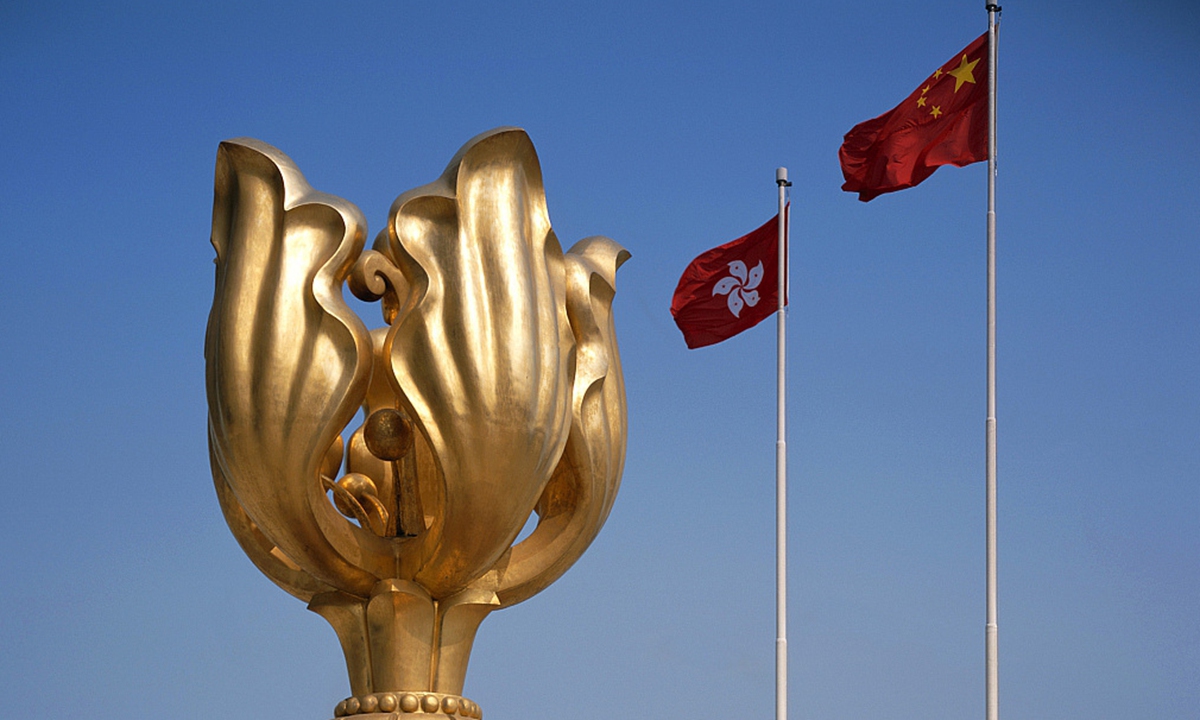All central government’s HK decisions are for city’s good: Global Times editorial

Hong Kong. Photo: VCG
After the fourth annual session of the 13th National People's Congress (NPC) unveiled a detailed draft decision to overhaul and improve Hong Kong's electoral system, the US and some other Western forces immediately expressed objection. They claimed it would erode Hong Kong's democracy and violate Beijing's commitment made to the international community regarding Hong Kong's high degree of autonomy. We believe the fact is opposite to what these forces say.Since Hong Kong's return in 1997, democracy has expanded. The city's prosperity has continued after it overcame the Asian financial crisis with the support of China's central government. However, owing to incitements by the West and radical Hong Kong opposition, extreme chaos has simmered in Hong Kong. The entire face of the city has been constantly politicized, sheering away from Hong Kong's position as a financial center. Some people's interpretation of "democracy" is full of confrontational paranoia and fanaticism. They have been attempting to transform the city's ideology with their political hostility.
Most of the so-called prominent figures that emerged in Hong Kong in recent years are political extremists, such as Jimmy Lai Chee-ying, Joshua Wong Chi-fung, and Benny Tai Yiu-ting. They are the culprits for Hong Kong's turbulences, but are hailed and supported by the West. They have messed up Hong Kong, and turned the city upside down that it is almost unrecognizable. Hong Kong used to be a center of financial information and culturally active. But later it became a global focus with political struggles, riots and destruction. US politicians even called such a Hong Kong "a beautiful sight."
For a long time, what Hong Kong had been most proud of was its prosperity, the most-treasured trait that the whole world admires. The implementation of the "one country, two systems" and the promotion of democracy after 1997 are aimed to make the "Pearl of the Orient" continue to shine. It was meant to refresh the city's attractiveness and lead millions of Hong Kong residents to live a better life. But a few extremists have tarnished the spirit of democracy. They exploited the loopholes in the electoral system under the disguise of democracy, causing greater damage to Hong Kong's operational system. Overhauling the electoral system is way to establish an institutional barrier that can keep extremists out of the system and stifle their delusional thinking that they can win political benefits through political confrontation. It can also strike a blow to their ambition and arrogance.
The Hong Kong Special Administrative Region is incapable of making an adjustment by itself. Under such a context, the central government has fulfilled a sacred responsibility to carry out the city's electoral reform based on the Constitution and Basic Law. The sole purpose is to safeguard Hong Kong's prosperity, and ensure its democracy not be maliciously twisted by anti-China forces. It also aims to make the "Hong Kong people governing Hong Kong" policy with a high degree of autonomy under the "one country, two systems" a lasting driving force for Hong Kong's sustainable prosperity and resist the West and Hong Kong radical opposition's attempt to hijack and manipulate Hong Kong's political agendas.
It must be pointed out that Chinese mainland and Hong Kong are a community wish shared interests when it comes to safeguarding the "one country, two systems" and Hong Kong's lasting prosperity. The central government's decisions regarding Hong Kong are made for the good of the city. The "one country, two systems" principle has won wide support among the mainlanders. The mainland society has no will to control the city or to turn it into a mainland city. We hope Hong Kong can keep its characteristics, keep shining under the "one country, two systems," and get on the right track to solve its thorny livelihood conundrums.
Hong Kong affairs has had a big weight in the 14th Five-Year Plan (2021-25) reviewed the by National People's Congress this time. The newly added content includes supporting Hong Kong to develop into an international innovation and technology hub. This will enhance Hong Kong's status as an international aviation hub, and support the development of the city as a China-foreign cultural and artistic exchange center. All these indicate the central government's determination to increase support for Hong Kong. They are in line with the common wish of the mainlanders to see a better Hong Kong than what it was before the return.
China's central government and the Chinese mainland are full of goodwill toward Hong Kong. However, the US and some Western forces are promoting interest-driven ties with Hong Kong. They have been utilizing their ties with the city. Such relations are abnormal. The starting point of their views on Hong Kong affairs are filled with their own national interests. The US has even embedded its Hong Kong policy into its strategy to suppress China. They won't pay any price for Hong Kong with any goodwill. They only hope to turn the city into a pawn to attack and contain China. This is the true mentality of some anti-China geopolitical fanatics in the US. Some people in Hong Kong may have various opinions on certain things. But it is hoped that everyone will make a basic distinction between those who love Hong Kong, those who have true good faith for Hong Kong and those who have no reason to do so, those who merely want to take advantage of the city. People should no longer be confused over these issues.
